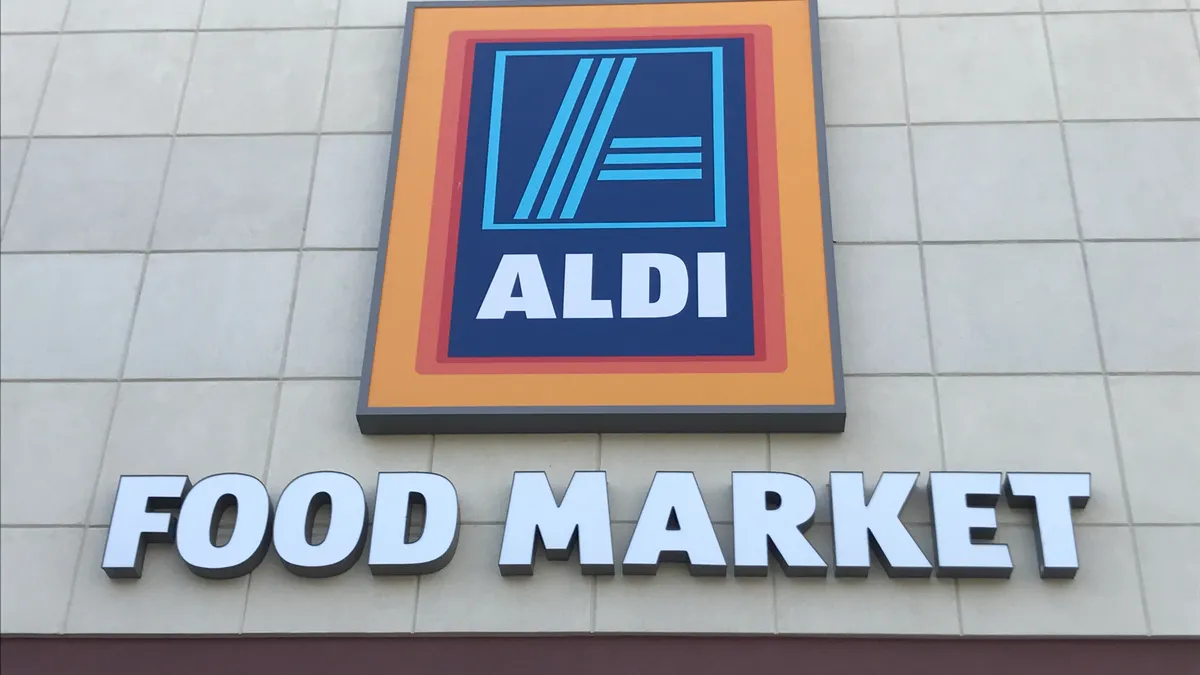Dive Brief:
- Aldi has announced plans to convert 100% of its packaging to reusable, recyclable or compostable materials by 2025, according to a company press release.
- The company will also reduce packaging for all Aldi-exclusive products by at least 15%, and will add How2Recycle labels on all of its Aldi-exclusive consumable packaging by 2020. Also by 2020, Aldi will implement a program to make it easier for customers to reuse private-label packaging materials.
- Aldi has long been active in plastic reduction, eschewing single-use shopping bags for more than 40 years. It maintains an Aldi Corporate Responsibility program, through which it recycled more than 250,000 tons of materials from its stores last year.
Dive Insight:
With more than 90% of its products falling under private label brands and its large footprint in Europe and the U.S., Aldi is uniquely poised to make a serious dent in single-use plastic usage throughout its stores. The discount grocer has long demonstrated a commitment to sustainability, keeping in favor with shoppers and showing environmental leadership among its competitors.
About 40% of plastic produced globally is used in product packaging, but less than one-fifth of plastic is recycled, creating serious environmental and human health problems according to National Geographic. Around the world, 31 of the biggest brands produce a staggering 8 million metric tons of plastic each year according to a study from the Ellen MacArthur Foundation's New Plastics Economy initiative.
The anti-plastic movement is sweeping through store aisles both in the U.S. and abroad. The European Union parliament just approved a ban to eliminate single-use plastic cups, cutlery, straws, plates and more by 2021. In the U.K., the war on plastic has been particularly fierce, with Prime Minister Theresa May announcing an aggressive plan last January to mitigate plastic waste throughout the region over the next 25 years.
Stateside, Trader Joe’s recently announced a similar plastic-reduction packaging initiative following pressure from consumer and environmental groups, while Kroger’s Zero Hunger Zero Waste plan includes eliminating plastic bags across its banners.
Earlier this year, Walmart unveiled its action plan for cutting plastic throughout its stores, focusing on the use of consumer-friendly recycling labels and 100% recyclable, reusable or compostable packaging for its private label offerings by 2025. In addition, Albertsons Companies’ Own Brands just launched a new line of compostable eco-friendly utensils and tableware products made from plant-based compostable materials.
Aldi joins major retailers and food brands with its commitment to adding How2Recycle labels to some of its products. Both Target and Wegmans began participating in the program more than five years ago, and Lidl announced a partnership with the organization in 2017. The goal of the program is to help consumers understand how to properly dispose of packaging components.












